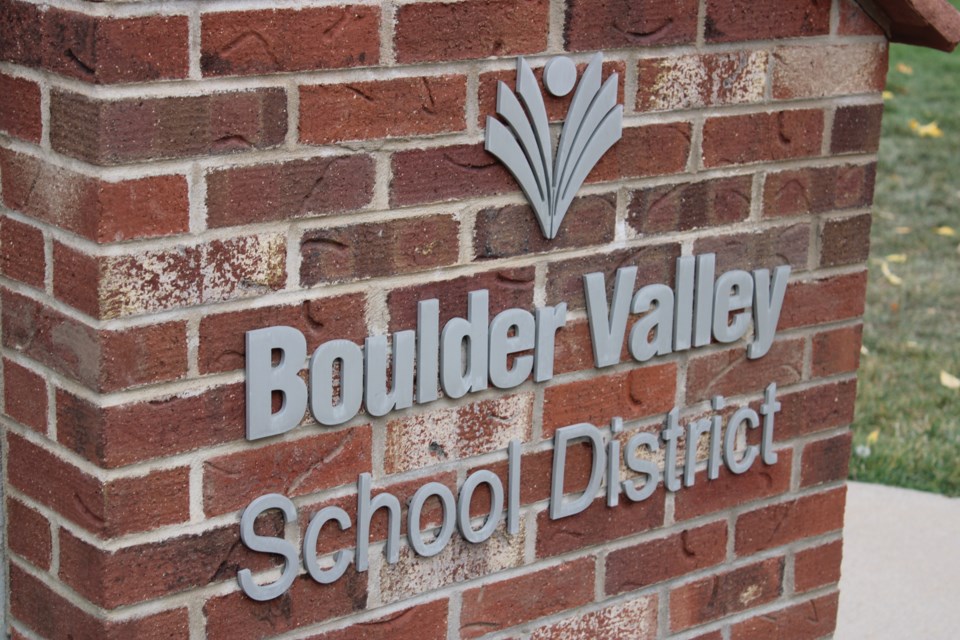Even before the Marshall fire, the King Soopers shooting and the COVID-19 pandemic, the Boulder Valley School District realized that to address student mental health, teachers and staff needed their own mental health needs addressed.
Six years ago, the district received the Resilience in School Environments or RISE grant from Kaiser Permanente to help with just that. The grant focuses on four outcomes including job satisfaction and stress reduction of staff and teachers, building connections between teachers and students, teaching social emotional learning skills to teachers and staff and increasing mental health support for students and staff.
“Teachers and staff, often they’re focused on the student first, and through this what they’ve learned is how to really look at themselves, have some self-awareness and understand when they might be stressed out, when they might be modeling anxiety in a way then that’s playing out in the classroom itself,” explained Curtis Robbins, community health program manager at Kaiser.
The grant was just renewed for another three year period, and helps fund a partnership between Boulder Valley and the University of Colorado Boulder, known as Resilience in Schools and Educators — also called RISE.
BVSD Student Support Services Director Tammy Lawrence said that the district has seen positive trends in social emotional competence, perception of stress and how to manage stress, educator resilience and increased educator understanding of trauma-informed schools and what that means thanks to this program. There have also been improved outcomes in job satisfaction, mental health for both staff and students, positive school climate and understanding of social-emotional learning for staff and students.
Lawrence said that the program aims to give teachers the same tools that they then teach to students for handling their emotional health.
“How do we equip our teachers with the same knowledge that we’re trying to give to our students and then giving them the skills to regulate their own emotions, recognize their own emotions, recognize their own needs and take care of themselves first — basically putting their oxygen masks on first before helping the students,” Lawrence said.
Six years ago, the discussion at many school districts mainly focused on social-emotional learning for students, not teachers. The pandemic and other high-stress situations triggered the conversations about supporting the emotional wellbeing for teachers and staff in many places, but Boulder Valley had already been prioritizing it.
As students, teachers and staff faced community tragedies like the King Soopers shooting and Marshall fire, they were able to use the lessons from the RISE work.
“Those that had it, it helped them get through that,” Lawrence said. “That’s what we’re hearing a lot of, ‘This is what I needed to get through this really hard year.’”
MaryErin Mueller, a behavioral health advocate at BVSD, said in the next couple years the district wants to deepen the work both at schools already participating in RISE and for new ones jumping into the work as well. The district plans to add more wraparound services including parent support groups in English and Spanish, to further spread a consistent message around emotional health for students and provide parents with the opportunity to learn about these tools.
“For so many years teachers were really the front lines of everything — they were the teachers, they were the counselors, and they were providing all the support,” Mueller said. “... What we notice is that it takes a toll on a person as a human. So the more we can help people feel they are valued and they are seen and they are heard — we might not be able to solve every problem that’s right in from of us, but if we can connect more with other people and if we can connect more to community supports, that allows us to continue to come back the next day and be in front of our students who are also experiencing stress and anxiety.”
Building relationships and connections is at the core of this work, which Lawrence noted is one of the top promoters of resiliency.
Robbins added that the intersection of health and education is a major one. If teachers feel healthy, they teach well, while healthy students learn better.
“Education is such an important part for them to have successful, healthy lives,” he said. “If they can feel safe in a classroom and feel valued and feel connected, that’s just so much an important part of their growth and development.”


